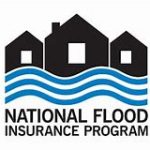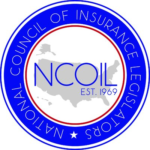Pushing for a better NFIP & private market
 The federal Office of the Flood Insurance Advocate is out with its annual report on common issues of frustration encountered by customers of the National Flood Insurance Program (NFIP). Meanwhile, the National Council of Insurance Legislators (NCOIL) is trying to bring in for a landing a Private Flood Insurance Model Act that could help encourage a more vibrant private market in all 50 states.
The federal Office of the Flood Insurance Advocate is out with its annual report on common issues of frustration encountered by customers of the National Flood Insurance Program (NFIP). Meanwhile, the National Council of Insurance Legislators (NCOIL) is trying to bring in for a landing a Private Flood Insurance Model Act that could help encourage a more vibrant private market in all 50 states.
The Flood Insurance Advocate’s 2019 Annual Report and Executive Summary identified five primary policyholder and property owner concerns or frustrations about their NFIP policies:
- Improper Application of Elevation Rating Using an Elevation Certificate (EC): Policyholders feel they have been treated unfairly when an EC was submitted to an insurer, and that the EC was applied much later to rate the policy, resulting in the overpayment of premiums for several years.
- Loss of Rating Discounts Following a Lapse in Coverage: Policyholders are frustrated when a third party, such as a lender, causes a lapse in coverage by not paying the flood insurance premium on time, resulting in the loss of rating discounts.
- Confusion Regarding Group Flood Insurance Coverage: Property owners who are issued coverage under the Group Flood Insurance Policy (GFIP) are frustrated when they experience a subsequent flood within the three-year policy term that is not covered.
- Limited Refunds After Receiving a “Letter of Map Amendment, Out as Shown”: Policyholders find it unfair when there are no refunds for terms prior to the effective date of a Letter of Map Amendment (LOMA) that shows their property is “Out as Shown” (OAS).
- Denial of Increased Cost of Compliance (ICC) Funds When Permits are Issued before Substantial Damage Letters: Policyholders are frustrated when they are denied ICC claims because the community made a substantial damage declaration after a permit requiring flood mitigation was already issued.
The Advocate’s report includes recommendations to address the issues outlined above. For more information about the Office of the Flood Insurance Advocate, visit the FEMA website.
 Meanwhile, NCOIL is continuing its work to adopt a Private Flood Insurance Model Act that states can use to encourage a vibrant private market as a needed complement and alternative to the NFIP – just as we’ve done here in Florida. A conference call is scheduled this Friday to discuss the current version of the Act, sponsored by Rep. David Santiago (FL) and Sen. Vickie Sawyer (NC) and an industry-proposed strike-all amendment.
Meanwhile, NCOIL is continuing its work to adopt a Private Flood Insurance Model Act that states can use to encourage a vibrant private market as a needed complement and alternative to the NFIP – just as we’ve done here in Florida. A conference call is scheduled this Friday to discuss the current version of the Act, sponsored by Rep. David Santiago (FL) and Sen. Vickie Sawyer (NC) and an industry-proposed strike-all amendment.
The goal is to have a Model ready for a final vote at NCOIL’s Summer Meeting in July. As we’ve been reporting here, the latest contended issue has been on the role insurance agents should play in educating policyholders on pricing of NFIP and private policies. The current version is a compromise and requires “producers” notify applicants that flood polices – public and private – exist. We’ve been pushing for an active role for agents, going beyond that to include pricing differences, given the large number of Americans who don’t know they live in flood hazard areas.
Our current coronavirus dilemma should serve as a vivid example of what can happen when consumers don’t know what’s in their insurance policy. We applaud NCOIL on this compromise and look forward to this Friday’s discussion!
For information on the unprecedented opportunities the growing flood insurance marketplace holds, please visit our Flood Insurance & Resilience webpage.
LMA Newsletter of 4-27-20

